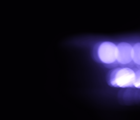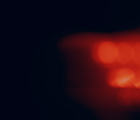About
Datarock
People like Röyksopp had been making electronic pop under different names on their laptops since the mid-nineties. During that time the Datarock boys were getting drunk and fulfilling their involuntary commitment to the Norwegian government: civil service - the bit you do if you don't want to join the army. They'd been in bands before they met in 1997 (Fredrik played thrash metal; Ket-Ill punk), but they had no intention of playing rock and they didn't own expensive laptops. Instead, they borrowed a shitty keyboard, which they still use, and began to experiment. They shared a love of Devo, Talking Heads and the Happy Mondays, so they took inspiration from them, and they decided the only way to go about things was do everything themselves - the music, of course, but also the artwork for their releases, and the techy things like their website, which a friend, one-time Datarock member Tom Mæland, helped out with.
Pop fact: the first Datarock release - a split 10" with Stockhaus - came out before they'd even played a gig. Not true. It was ready, and it was supposed to, but it got postponed by six months and, in that time, they'd debuted at Annie's Pop Till You Drop club. She even joined them on stage. That was December 16, 2000. The 10" came out in the new year on the tiny label that would end up defining a period in Norwegian pop music - Tellé (or Éllet as it was sometimes called), the original home of Röyksopp, Kings of Convenience and Annie.
Early Datarock gigs were as they are now - bonkers. Like their heroes Devo, they wanted to put on a performance, but, unlike them, they didn't have swanky equipment or fancy art school backgrounds. So they did what they do best: they called in their friends, improvised, and did everything on the cheap. As many as 20 people could be witnessed on stage, 15 of whom were doing nothing other than dancing around like goons in stupid sunglasses and speaking into gigantic walkie talkies. Oh, and everyone had to wear white. You have to have some rules.
Datarock caught people’s imagination instantly, and not just in Norway. One of the first interviews they did was with BBC Radio 1. Keen to capitalise on the interest, they began to make plans for their second release. They thought and thought and then it came to them: a 3” CD! And stuffed full not just of songs, but a Datarock video game as well. Brilliant! Amusingly, they called it ‘Demo/Greatest Hits’. Four hundred copies were burnt and hand-painted by the band themselves and, with no real effort, the mini record travelled far. That was 2002, and Datarock were hot. At 2003’s Sonar Festival, where they played a Tellé Records showcase, people were name-checking them on the streets, and all because they’d come across their little CD somewhere down the road. They were greatly amused.
An EP entitled ‘Computer Camp Love’ followed in 2003 and sold out quickly. They were touring the world now and finding they had hardcore fans in unusual places. Switzerland went crazy for them, and so did Canada. Come 2004, though, they knew they needed to keep moving forward. How come they had never been asked to play the Roskilde festival? Because they didn’t have an album out! They set to work in the only way they knew how – by doing everything themselves. It would be called, simply, Datarock Datarock, and they would put it out on their own label, Young Aspiring Professionals.
Datarock Datarock was released in Norway in 2005. Now it’s the rest of the world's turn to experience the Datarock phenomenon.





